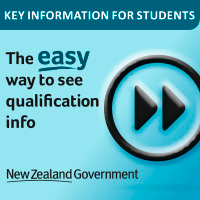Postgraduate Certificate in Theology
The Postgraduate Certificate in Theology (PGCertTh) provides an advanced level theological qualification for those who have already completed a recognised bachelor’s level or a Graduate Diploma qualification in Theology. This is a 60-credit programme of study (one semester full time equivalent) consisting of two taught courses.
Click here to view or download a programme summary.
Click here for information about the admissions requirements for the PGCertTh

| LEVEL | 8, 60 credits |
| DURATION | Full-time for one semester, part-time options available |
| STARTS | February & July |
| PLACES | Open – Selection criteria apply |
| CAMPUS | Henderson, Distance Learning *see note below |
Career Opportunities
- Church leadership
- Paid employment in areas such as
· Pastoral Vocations
· Christian writing
· Church based ministries
· Cross-cultural ministries
· Inter-cultural ministries
· Para-church work - Professional development
- Effective service as a church member
- Personal Christian growth
- Workplace Christians
- Further study at master's and doctoral level
Postgraduate courses are taught in block courses of one or two weeks (depending on the particular course). This allows people living outside of Auckland to travel for just the block course teaching, and helps those working full time to fit postgraduate study into their busy lives.
*Note that, apart from R351, Postgraduate courses do not have a Distance Learning option - live engagement in the lectures is a necessary part of postgraduate study at Laidlaw.

Graduates of the programme will be awarded the Postgraduate Certificate in Theology.
Graduates will be able to:
- Evaluate critically a wide spectrum of literature in each of the coursework areas and in the areas of the research undertaken.
- Demonstrate mastery of the issues of debate in each of these areas.
- Give a fair and informed account of representative points of view in each subject area.
- Utilise sound hermeneutical principles in contextualising biblical theology within the subject area studies.
- Demonstrate advanced skills of research, critical analysis and constructive synthesis and application so as to make a significant contribution to knowledge in their area of specialisation.
- Reflect on the professional, ethical, and relational implications of their study for ministry in the modern world.
Graduates of the programme may progress to higher level study such as Postgraduate Diploma in Theology, master’s, or doctoral studies.
Graduates will be qualified to work in church leadership, pastoral vocations, church-based ministries, Christian writing, cross-cultural ministries, inter-cultural ministries, and/or para-church work.

Candidates will be admitted to the Postgraduate Certificate in Theology programme:
- Where the candidate has completed a recognized three-year Bachelor’s degree in Theology or Ministry, with a grade point average of 7.0 (B) in courses of the qualifying undergraduate programme at NZQA levels 6 and 7.
- Where the candidate holds a recognized Bachelor’s level degree in a discipline other than Theology or Ministry and has completed a bridging programme such as Laidlaw’s 120 credit Graduate Diploma in Theology with a grade point average of 7.0 (B) at NZQA level 7.
- In exceptional circumstances the relevant Academic Head may allow entry to candidates who hold Laidlaw’s 60 credit Graduate Certificate in Theology with a grade point average of 7.0 (B) at NZQA level 7.
In exceptional circumstance the relevant Academic Head may, at their discretion, give special admission to candidates who have successfully completed an alternate academic programme that meets the standard required to enter postgraduate study. Each application will, however, be considered in light of the applicant’s overall background and ability to benefit from the programme. The onus is on students to provide details of all qualifications and experience relevant to the application process.

Please contact Laidlaw Graduate School


